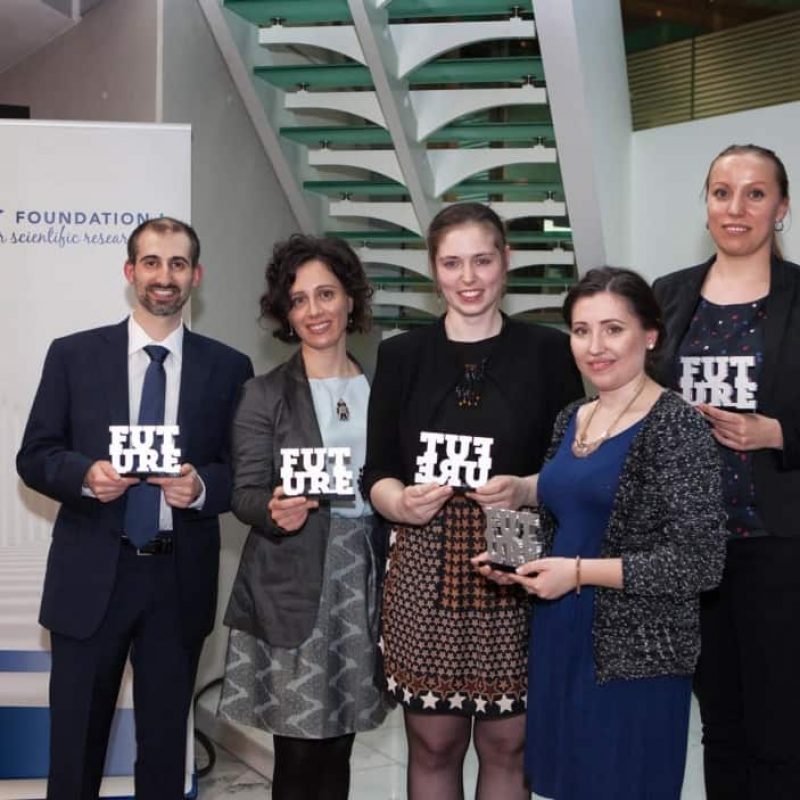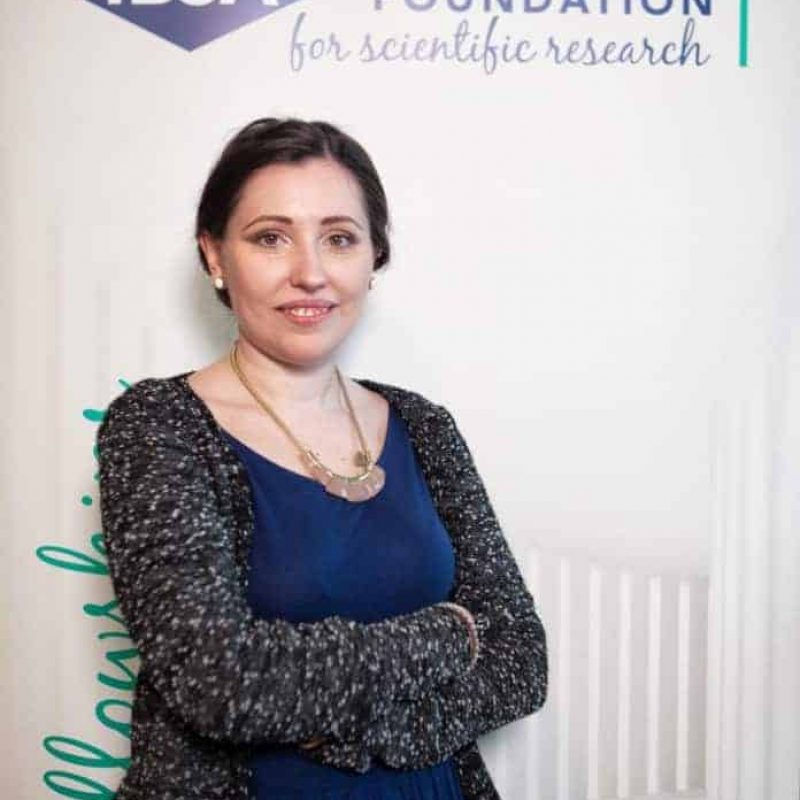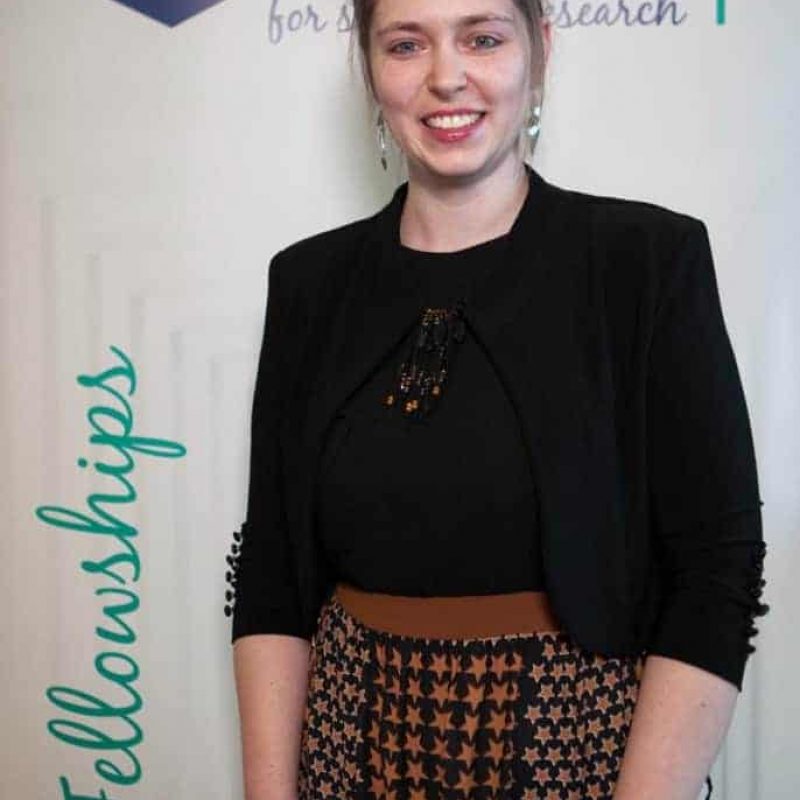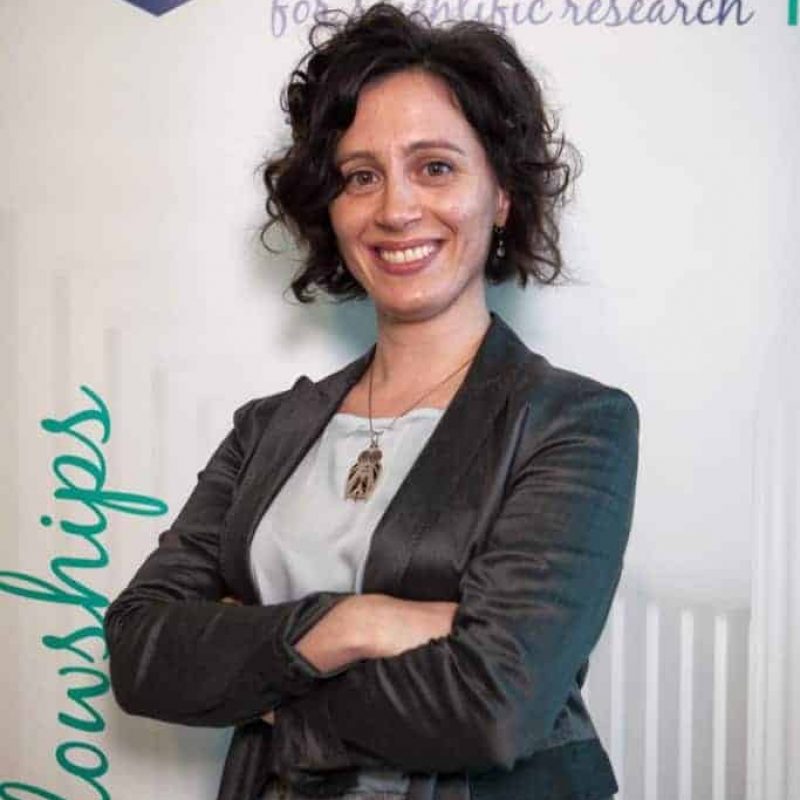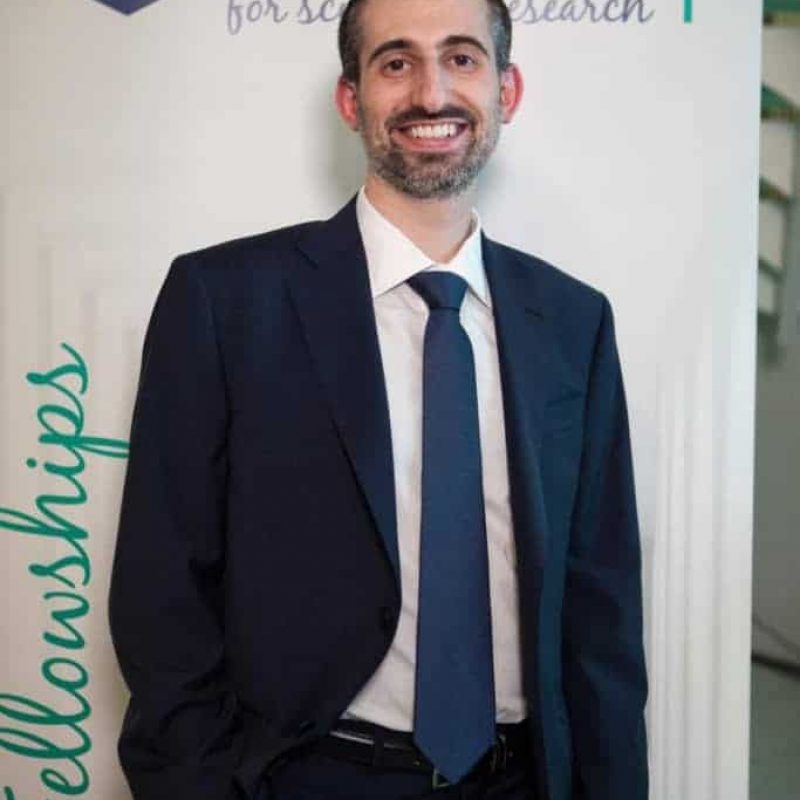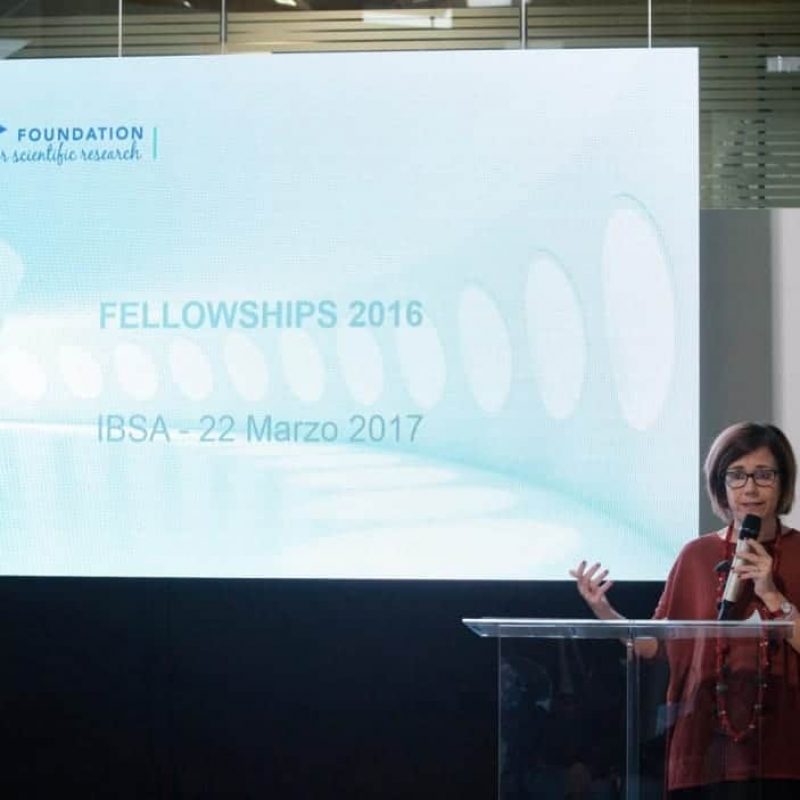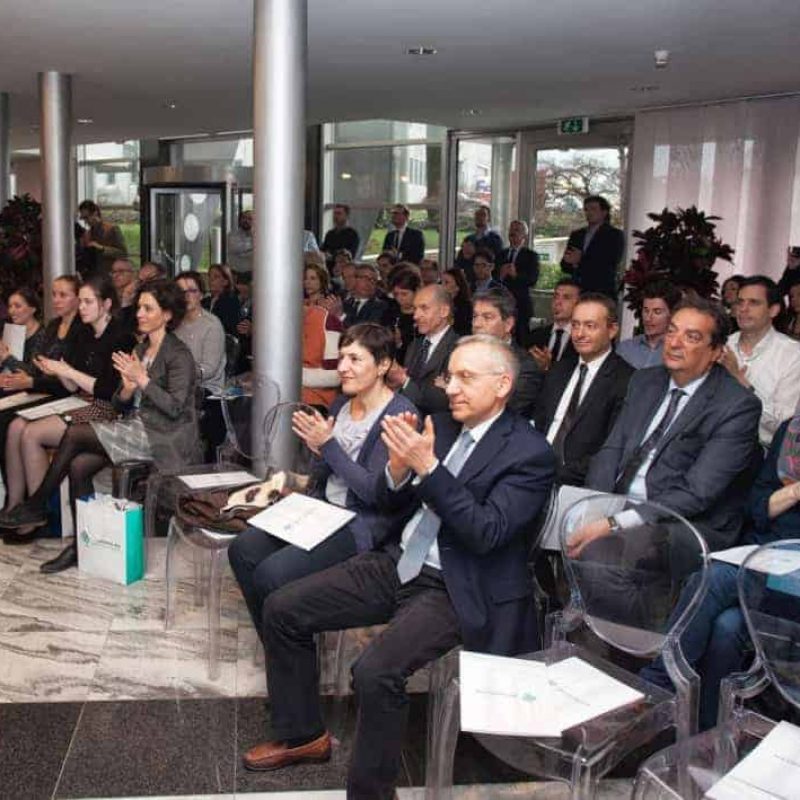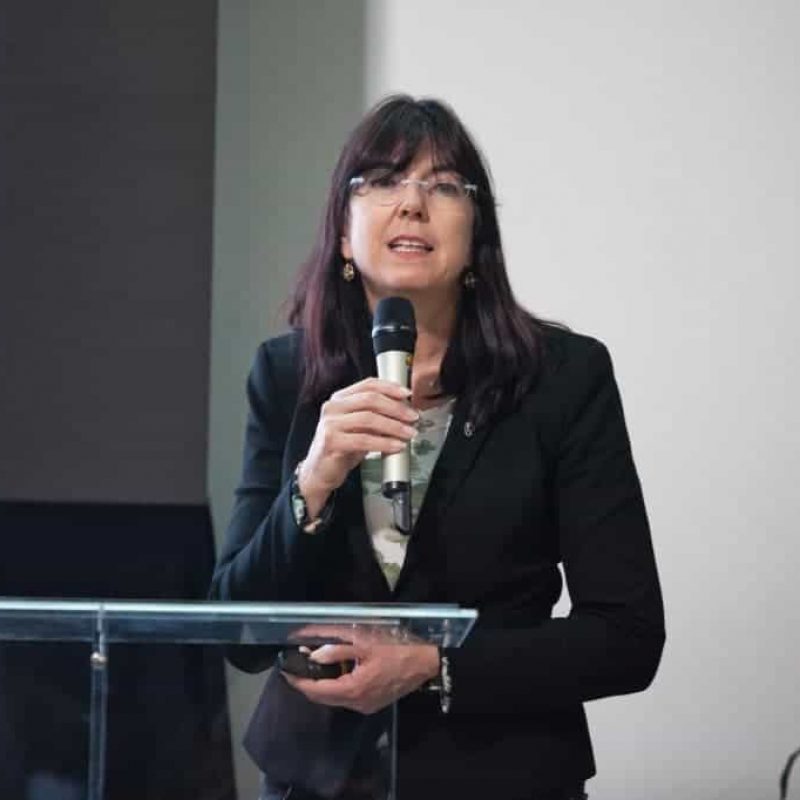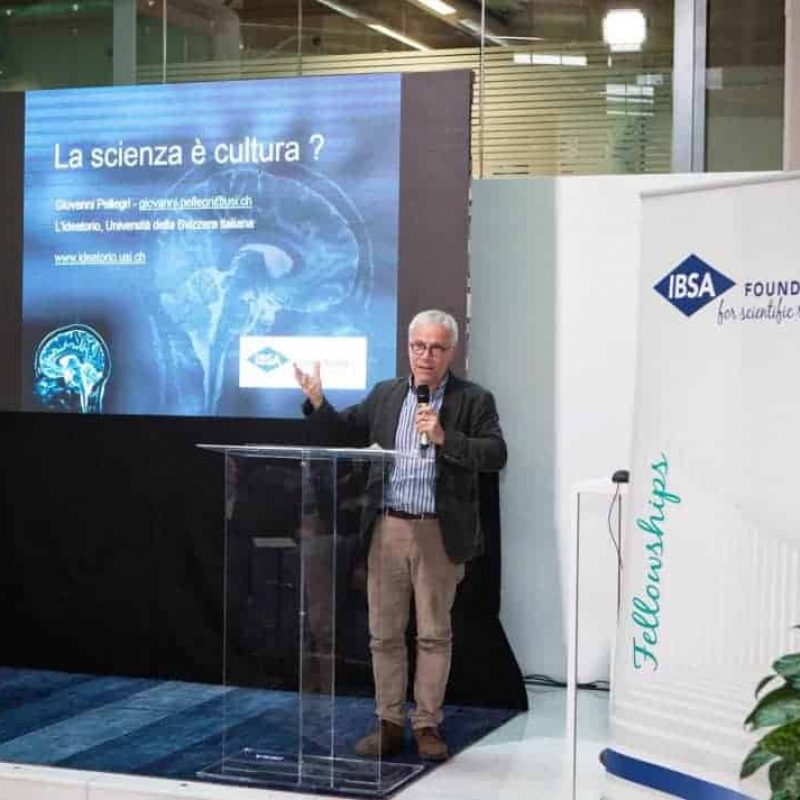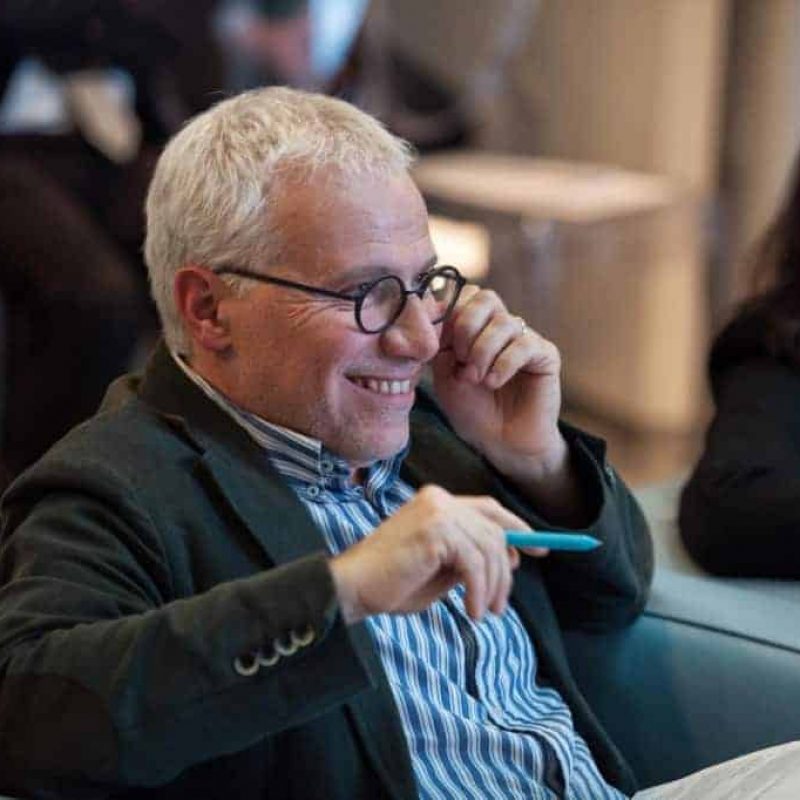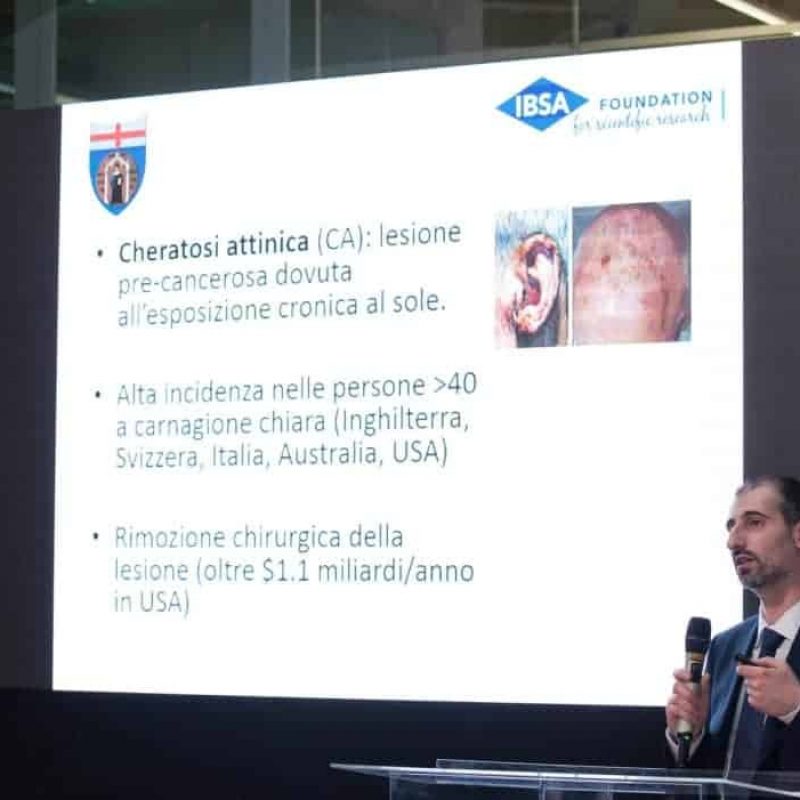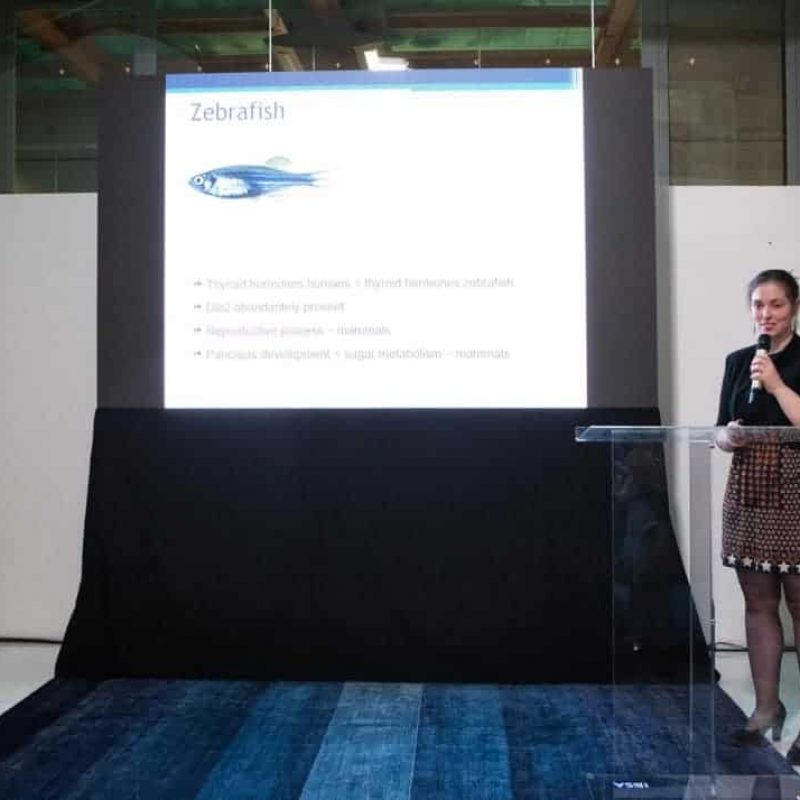In the area of dermatology, Francesco Piacente of the Department of Internal Medicine and Medical Oncology, University of Genoa was awarded, with a project entitled “Preclinical Evaluation of Chemical SIRT6 inhibitors for treating field cancerization”, developed in collaboration with the Department of Biochemistry of the Lausanne University.The study aims to perform a preclinical evaluation of small molecule inhibitors for the treatment of the “field of skin cancerization”, a term used to indicate vast areas of precancerous lesions where genetically altered cells, but histologically without atypia, precede the development of a neoplasm and are juxtaposed with existing malignant cells. To this end, the SIRT6 inhibitors available, which have already demonstrated a strong activity of cultured human keratinocytes, will be initially tested in vitro in cells of squamous cell carcinoma. Next, they will be tested in a mouse model of “field cancerization”.
For the endocrinology area, Anne Houbrechts of the Laboratory of Comparative Endocrinology of ‘University of Leuven-Belgium, has been awarded thanks to the study entitled “Implications of deiodinase type 2 deficiency in reproduction and diabetes” The project takes off from the analysis of the behavior of thyroid hormones in tissues, coordinated by different types of regulators: the conveyor (which facilitate inflow and outflow of thyroid hormones through the cell membrane), the deiodinase (enzymes that activate and inactivate thyroid hormones) and receptors (to which thyroid hormones bind to influence the transcription of genes). The research includes the study of the effects caused by the deficiency of the enzyme deiodinase type 2 and aims to help identify the molecular mechanisms underlying fertility problems in hypothyroid patients, and the involvement of this enzyme involved in diabetes mellitus.
Ilaria Ferrari coming from the Endocrinology and Metabolism Research Laboratory of the Istituto Auxologico Italiano in Milan, was the winner of the fellowship in Fertility / Infertility field, with a study on genetic testing for the best prognosis in assisted reproduction entitled “Molecular screening of genes with a structural role in meiosis in women with fertility disorders driven by poor oocyte quality”. The purpose of the research is to conduct a screening of genes with a structural role in meiosis, in specific group of patients with primary ovarian insufficiency (POI). A better understanding of these genetic defects contribute to the construction of genetic testing able to predict early deterioration of ovarian reserve and worse prognosis in assisted reproduction programs.
For the area dedicated to pain therapy, Mayya Sundukova coming from European Molecular Biology Laboratory (EMBL) of Monterotondo (Rome), was awarded for the study on the treatment of neuropathies entitled “Silencing a subset of sensory fibers to relief neurophatic pain”. Objective of the project is to design local anesthetics, able to act in a targeted manner only on a desired subset of myelinated sensory fibers, and prevent the depolarization of nerve membrane only in those neurons. The outcomes of this project may suggest a new therapeutic approach for relieving neuropathic pain.
Finally, Olga Krupková coming from the Institute of Biomechanics of ETH Zurich, awarded in the Orthopaedics/Rheumatology field, received the Fellowship Ibsa 2016 thanks to the research entitled “Bioactive microparticles targeting progression of degenerative disc disease”. The research assumes that low back pain is the leading cause of disability, activity limitation and lost productivity all over the world, affecting approximately 80% of all people who suffer from back pain at least once in their life. Degenerative disc disease (DDD), a progressive multifactorial disorder of the intervertebral disc (IVD), is one of the main factors in the development of low back pain, and there is currently no available therapy that can stop the degenerative process. The goal of the project is to improve the treatment of degenerative disc disease through the development of a medical minimal-invasive prototype, consisting of biologically active micro-particles dispersed in a protective support, injectable and “intelligent”.
During the awards ceremony, IBSA Foundation has launched a new call for 2017. Each year, the researchers participating in the project are becoming more numerous. In the first year, 50 young people have participated in the call, while in this 4th edition of FELLOWSHIPS, IBSA has identified the winners, analyzing 120 research projects coming mainly from Europe and the United States.
Video
Photos


